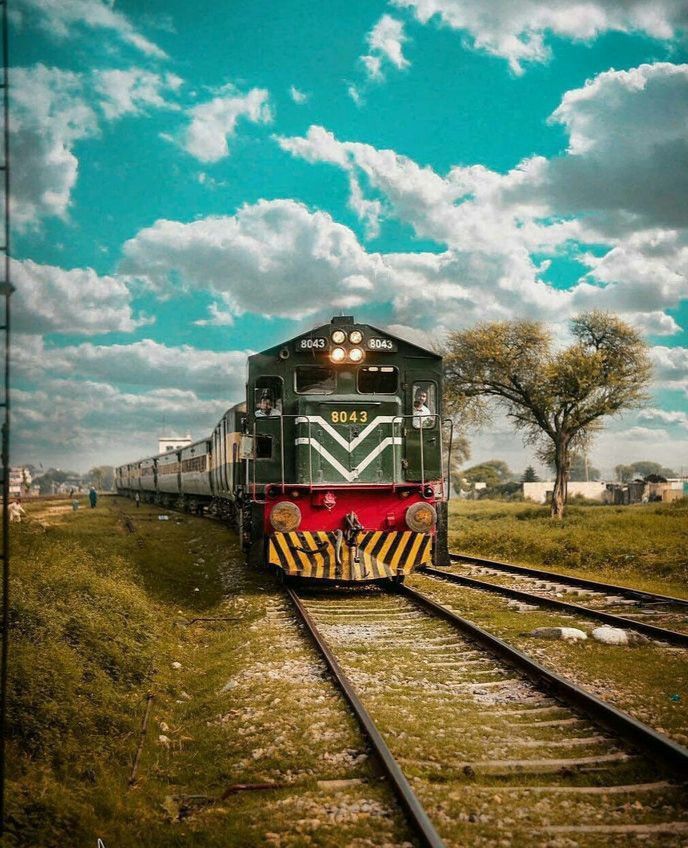
“Islamabad–Rawalpindi Travel in Just 20 Minutes?”
The Vision of a 20-Minute Train Journey

Islamabad, the federal capital, and Rawalpindi, its twin city, are connected through roads that are often clogged with traffic. Daily commuters waste hours on travel, which impacts productivity and quality of life. The new Islamabad–Rawalpindi fast train is designed to change that. According to initial reports, the journey between the two cities will be completed in just 20 minutes, making it one of the fastest local transport options in the country.
This project is not only about speed; it represents modernization, efficiency, and sustainable transport. By reducing travel time drastically, the train can transform the way people move between the two cities.
Why Islamabad and Rawalpindi Need a Fast Train
Every day, thousands of people travel between Islamabad and Rawalpindi for work, education, or business. The roads, particularly Murree Road, Expressway, and IJP Road, often face severe congestion. This causes frustration, fuel wastage, and delays.
A modern fast train can ease the pressure on roads and provide a reliable alternative. Imagine leaving home in Rawalpindi and reaching your office in Islamabad in just 20 minutes. This not only saves time but also reduces stress, making daily life more manageable.
Features of the Proposed Train Service
Although full details are yet to be released, reports suggest that the Islamabad–Rawalpindi fast train will include:
- High-speed coaches with modern seating.
- Eco-friendly technology to reduce carbon emissions.
- Affordable tickets to make it accessible for everyone.
- Smart stations equipped with digital systems.
- Security measures to ensure passenger safety.
These features indicate that the government aims to provide a service comparable to international standards.
Economic and Social Impact
The launch of a 20-minute train service between the twin cities would have huge benefits:
- Economic Growth: Businesses will operate more efficiently as employees save time and energy.
- Job Creation: Construction, operation, and maintenance of the train will create thousands of jobs.
- Tourism Boost: Tourists visiting Islamabad will find it easier to explore Rawalpindi and nearby areas.
- Environmental Benefits: A fast train will reduce the number of cars on the road, cutting pollution.
This project could also inspire other cities in Pakistan to adopt modern high-speed transport solutions.
Challenges Ahead
While the idea sounds promising, there are challenges that must be addressed:
- Funding: Building a modern railway system requires huge investment.
- Land Acquisition: Developing new routes may face resistance due to land issues.
- Maintenance: High-speed trains need world-class maintenance systems.
- Implementation Delays: Many projects in Pakistan face delays; citizens hope this will not be one of them.
Despite these challenges, the government and private sector seem determined to push this project forward.
Public Reaction
Citizens of Islamabad and Rawalpindi have welcomed the idea with great enthusiasm. Many believe this project will finally solve the decades-long issue of traffic congestion. On social media, people are calling it a “game changer” and a “modern transport revolution.” However, some remain skeptical, asking whether the 20-minute journey is realistically possible given Pakistan’s track record with mega projects.
Conclusion
The proposal of a 20-minute Islamabad–Rawalpindi fast train has created hope for better connectivity, faster travel, and improved quality of life. If implemented successfully, it will not only benefit commuters but also reshape urban transport in Pakistan.
The big question remains: Will this dream project move from planning to reality? If yes, then the Islamabad–Rawalpindi fast train could become a symbol of progress and modern development for the entire nation.




